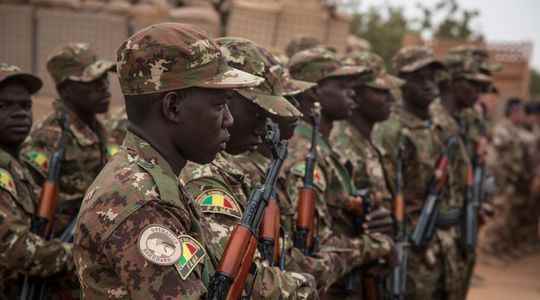“It is a serious attack on the freedom of the press”, denounced this Thursday France after having been notified by the Malian military junta of the suspension until further notice of the broadcasting of the antennas of the RFI radio and the France 24 television channel in Mali. In question, the broadcast, on the two antennas of the France Media World group, of testimonies accusing the Malian armed forces of executions and looting. In recent weeks, the junta has signaled its intention to control foreign media and had already expelled a French journalist from the weekly Young Africa.
In power since 2020, the military is strengthening its grip on Malian society and is increasingly disrupting the democratic context of a key country in the fight against jihadism. Since the second putsch in 2021, relations between Mali and France have been terrible, going as far as the forced departure of the French ambassador last February. The Africa specialist Antoine Glaser, author of the book “The African trap of Macron”, assures that it is a displayed will of the junta to fold Mali on itself.
L’Express: By suspending RFI and France 24, two media followed by a third of the Malian population, is the military junta trying to silence all the discordant voices of its own?
Anthony Glaser: Yes, there is a clear desire for complete control of the country. Critics now come from outside, so by closing Mali in on itself, the authorities are trying to stifle them. The junta wants to make its population understand that the criticisms are manipulations, coming in particular from France. But internal discontents are also combated by this means. The sanctions taken by the Economic Community of West African States, ECOWAS, against Mali will have an impact on the population, particularly in the capital Bamako. The power thus blocks the channels for the dissemination of possible complaints.
Precisely, what is the popularity of the junta today within the population?
It is very difficult to know. Unlike many coups, this one was supported by the people, Colonel Assimi Goïta having promised to “restore power”. Many Malians are also fed up with France’s criticism, but it is unclear how the population will behave in the face of the economic difficulties to come.
Jihadist groups are approaching the capital Bamako and only want to discuss with the military junta. Can this explain the current attitude of the Malian government towards France?
Admittedly, France never agrees to negotiate with the jihadists, but the military junta has been doing so for some time. What the jihadists want is to control certain areas, certain villages, in order to apply their justice there, in particular the sharia. But you have to be honest, they have already won. They scared away Westerners and installed an informal economy based on trafficking. Many territories of the country escape the military junta.
What is the influence of Russia, present in Mali through the Wagner group, on the military junta?
The presence of Russia in Mali is not new and it should not be overestimated. We were talking about the presence of the Wagner group long before the invasion of Ukraine. The latter does not exploit Malian power but serves the interests of President Putin. If Russia interferes in Malian affairs, it is out of pure opportunism, as it did in Sudan and the Central African Republic. Africa is a geostrategic continent, so Russia rushes in as soon as it has the opportunity.
